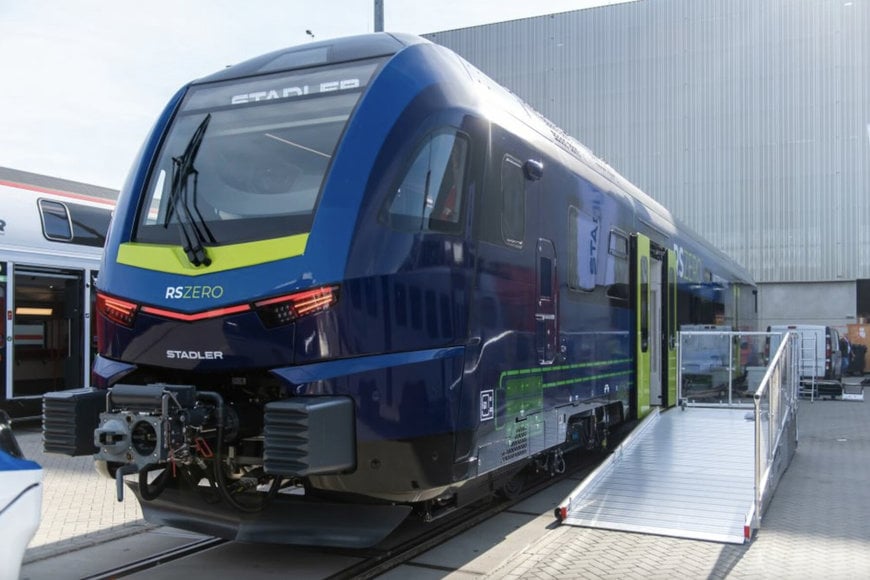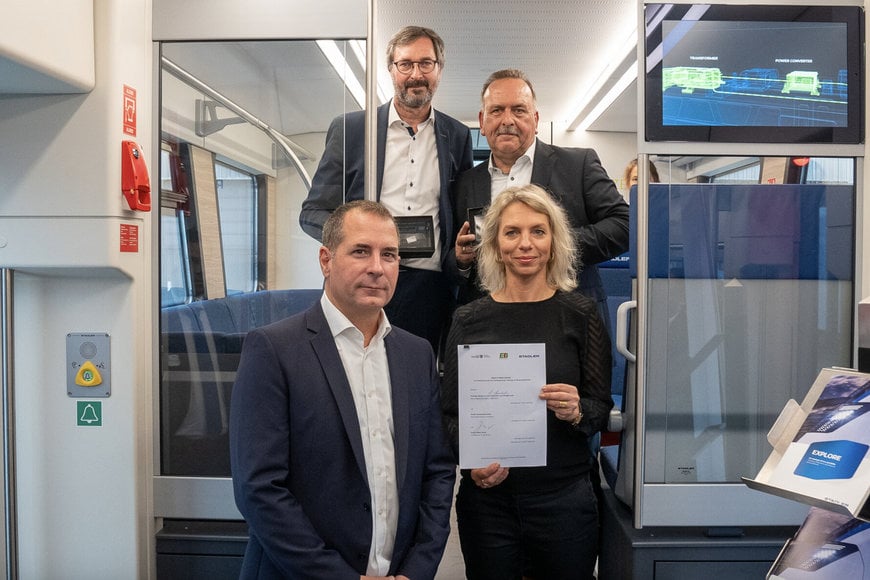railway-international.com
02
'24
Written on Modified on
STADLER, ERFURTER BAHN AND THURINGIA ARE DRIVING FORWARD THE DEVELOPMENT OF SUSTAINABLE MOBILITY
The RS ZERO prototype exhibited at InnoTrans has a hydrogen drive that produces zero local emissions and was developed to be used on rail lines without overhead lines.
stadlerrail.com

The Swiss rail vehicle manufacturer Stadler took a further step towards sustainable mobility. Together with the Thuringian Ministry of Infrastructure and Agriculture (TMIL) and Erfurter Bahn, a declaration of intent was signed that envisages the use of the hydrogen prototype RS ZERO in Thuringia as part of a pilot project.
A milestone for Thuringia and the environment
Thuringia is sending a strong signal for climate protection: the state plans to significantly reduce greenhouse gas emissions in local rail transport by the middle of the next decade and to replace the diesel vehicles currently in use with more environmentally friendly rail vehicles in the medium term. The RS ZERO prototype exhibited at InnoTrans has a hydrogen drive that produces zero local emissions and was developed to be used on rail lines without overhead lines. This gives the vehicle the potential to replace existing diesel trains and thus make a significant contribution to reducing greenhouse gas emissions in regional rail transport. That is why TMIL is supporting the testing of the RS Zero prototype and will use the project results to review and further develop the current strategy for achieving largely emission-free regional rail transport in Thuringia.
Innovative technology for a greener future
The RS ZERO will be available in the future with a hydrogen drive – as presented at InnoTrans – or as a battery-electric variant, thus providing a future-oriented solution for CO2-emission-free operation on non-electrified lines. With the creation of suitable infrastructure – whether hydrogen filling stations or charging islands – a technically optimised vehicle concept can be offered adapted to the rail network to be used. Thanks to its lightweight construction and an axle load of under 18 tonnes, the RS ZERO is ideal for branch lines with low passenger demand, thus creating the possibility of economically attractive transport services away from the main lines.

Pioneering pilot project
Following on from the memorandum of understanding signed today, all three partners are aiming to establish a project partnership in the coming months, in which the details and conditions for the start of the pilot project will be agreed. The pilot project involves the use of the prototype in trial operations with passengers, probably starting in mid-2026, on catenary-free lines in Thuringia. The trial operation will ensure that the RS ZERO meets the requirements of passengers and the operational, technical and economic expectations of the railway companies. Suitable regional rail lines will be selected in cooperation with the three partners. Depending on the location, the service will be operated by the Erfurt Railway or the South Thuringian Railway.
www.stadlerrail.com

